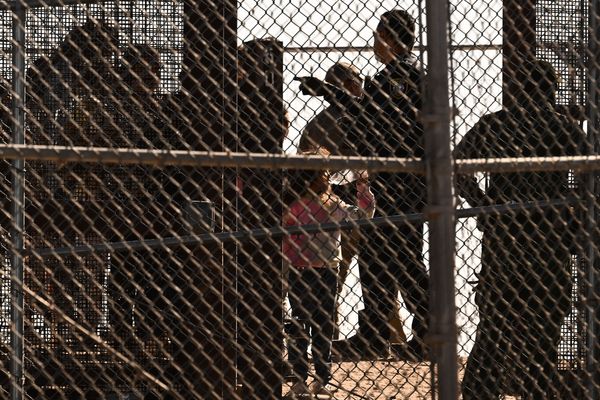
President-elect Donald Trump's team is exploring various avenues to fulfill his longstanding promise to terminate birthright citizenship, a move that would likely lead to a legal battle culminating in a Supreme Court decision. Trump has criticized birthright citizenship, protected by the 14th Amendment, and indicated his intention to use executive action to abolish it.
Strategies under consideration include instructing the State Department to withhold passports from children of undocumented parents and tightening tourist visa requirements to combat 'birth tourism.' Trump's allies argue that the 14th Amendment has been misinterpreted and does not apply to children born in the U.S. to undocumented parents.
About 4.4 million U.S.-born children under 18 live with undocumented parents, according to the Pew Research Center. While the Trump administration anticipates legal challenges, opponents are also preparing to contest any attempts to end birthright citizenship in court.



Legal experts cite the 14th Amendment and Supreme Court precedents as strong arguments in favor of birthright citizenship. Despite the conservative leanings of the current Supreme Court, experts believe that overturning birthright citizenship would be a significant departure from established legal principles.
Democratic attorneys general have expressed readiness to challenge any efforts to revoke birthright citizenship. They argue that the Constitution and historical precedent support the recognition of individuals born in the U.S. as citizens.
While the Trump administration may seek to bring the issue before the Supreme Court, the outcome remains uncertain. The debate over birthright citizenship underscores fundamental questions about the nation's identity and democratic principles.







